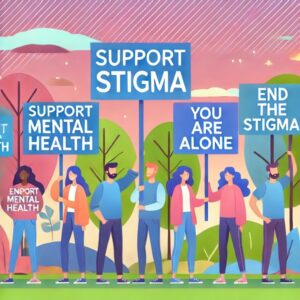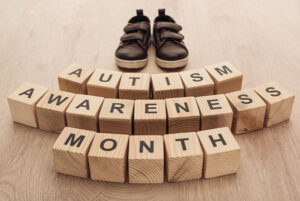
Promoting Mental Health Awareness: Importance and Actions
Understanding Mental Health Awareness Month
Mental Health Awareness Month, observed every May, is a time dedicated to raising awareness about mental health issues, reducing stigma, and promoting resources and support for those affected. This annual event aims to educate the public, advocate for policies that support mental health, and provide support for those in need. Understanding the significance of Mental Health Awareness Month helps create a more inclusive and supportive society.
The History of Mental Health Awareness Month
The origin of Mental Health Awareness Month dates back to 1949, when the Mental Health America organization (then known as the National Association for Mental Health) initiated the observance. Since then, it has grown into a national movement, supported by various organizations, advocacy groups, and government agencies. Each year, different themes are highlighted to address specific aspects of mental health, such as the impact of COVID-19, the importance of self-care, and the need for accessible mental health services.
Why Mental Health Awareness Matters
Mental health awareness is crucial for several reasons. Firstly, it helps to reduce the stigma associated with mental health conditions. Many people with mental health issues face discrimination and misunderstanding, which can prevent them from seeking help. By promoting awareness, we can foster a more compassionate and informed community.
Secondly, awareness encourages early intervention. Recognizing the signs and symptoms of mental health issues can lead to timely support and treatment, improving outcomes for individuals. Lastly, it highlights the importance of mental health as part of overall well-being, reminding us that mental health is just as important as physical health.
How to Support Mental Health Awareness Month
There are many ways to support Mental Health Awareness Month. One of the simplest ways is to educate yourself and others about mental health. Learn about different mental health conditions, their symptoms, and how they can be treated. Share this information with friends, family, and colleagues to spread awareness.
Participating in events and activities organized by mental health organizations is another great way to show support. These can include webinars, workshops, and fundraising events. Many organizations also offer resources and toolkits to help you spread awareness in your community.
Advocating for Mental Health Policies
Advocacy is a powerful tool in promoting mental health awareness. Support policies that provide funding for mental health services, improve access to care, and protect the rights of individuals with mental health conditions. Contacting your local representatives, signing petitions, and participating in advocacy campaigns can make a significant impact.
Engaging with mental health organizations and joining advocacy groups can also amplify your voice. These organizations often provide platforms for individuals to share their stories, which can be a powerful way to influence policy and change public perception.
Resources for Mental Health Support
Numerous resources are available to support mental health. Mental Health America, the National Alliance on Mental Illness (NAMI), and the Substance Abuse and Mental Health Services Administration (SAMHSA) offer a wealth of information and support services. These organizations provide helplines, support groups, and educational materials to help individuals and their families navigate mental health challenges.
Additionally, many employers offer Employee Assistance Programs (EAPs) that provide confidential counseling and support services. Schools and universities also have counseling centers that offer resources for students. Utilizing these resources can provide valuable support and guidance.
Promoting Self-Care and Wellness
Self-care is an essential component of mental health. Taking time to care for your mental and emotional well-being can prevent burnout and reduce stress. Simple self-care practices such as regular exercise, healthy eating, adequate sleep, and mindfulness can make a significant difference in your mental health.
Engaging in activities that bring you joy and fulfillment is also important. Whether it’s a hobby, spending time with loved ones, or simply relaxing, making time for activities that nurture your spirit can enhance your overall well-being.
Supporting Others in Their Mental Health Journey
Supporting others is a key aspect of Mental Health Awareness Month. Reach out to friends, family members, and colleagues who may be struggling with mental health issues. Offering a listening ear, showing empathy, and encouraging them to seek professional help can make a significant difference.
Being aware of the signs of mental health issues, such as changes in behavior, mood swings, and withdrawal from social activities, can help you identify when someone may need support. Remember that sometimes, just being there for someone and showing that you care can be incredibly powerful.
Creating a Culture of Mental Health Awareness
Creating a culture of mental health awareness involves ongoing effort and commitment. Encourage open conversations about mental health in your community, workplace, and family. By normalizing these discussions, we can reduce stigma and create environments where people feel safe seeking help.
Promoting mental health education in schools, workplaces, and community centers can also play a significant role in raising awareness. Providing training on mental health first aid and creating support networks can help individuals feel more equipped to handle mental health challenges.
Conclusion
Mental Health Awareness Month is a vital time to reflect on the importance of mental health and take action to support those affected. By educating ourselves, advocating for policies, and promoting self-care, we can contribute to a society that values and supports mental health. Remember, mental health is a journey, and together, we can make a difference.














